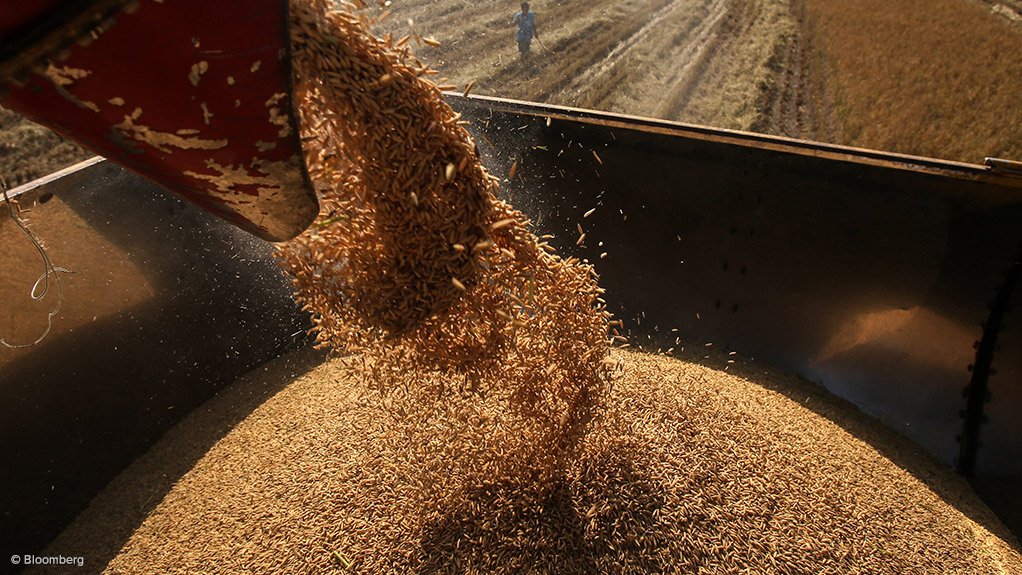Drop in agribusiness confidence shows sector is facing challenges, but remains on sound footing
The Agribusiness Confidence Index (ACI), published by the Agricultural Business Chamber of South Africa (Agbiz) and the Industrial Development Corporation, deteriorated by seven points to 53 in the third quarter.
“The third-quarter results present a picture of a sector that remains on a sound footing, but one that is confronted with a range of challenges,” says Agbiz chief economist Wandile Sihlobo.
“This moderation in sentiment suggests that 2022 could show a contraction in South Africa’s agriculture gross-value-add. However, this does not mean the sector is in terrible shape. The base in 2021 is high and we see slightly lower harvests in some field crops this year,” he points out.
Higher input costs, friction in some export markets, persistent animal disease challenges, rising interest rates, intensified geopolitical risks which disrupted supply chains and ongoing weaknesses in municipal service delivery and network industries remained the key factors that survey respondents cited as key concerns.
However, a level of the ACI above the neutral 50-point mark implies that agribusinesses remain cautiously optimistic about operating conditions in South Africa. Therefore, the third-quarter results still reflect broadly favourable agricultural conditions, albeit not as strong as the previous seven quarters.
Further, the prospects of a weak La Niña provide a good foundation for an excellent rainy season. This is notwithstanding the lingering challenges of higher prices of critical farm inputs, such as fertiliser, agrochemicals and fuel, which will put pressure on farmers’ and agribusinesses' finances when the summer crop season starts in October, Sihlobo says.
“For the long-term growth of this sector, the need to improve the efficiency of ports, electricity supply and water, quality of roads, curbing crime that devastates the rail network and improving biosecurity should be prioritised by both government and the private sector,” he adds.
Meanwhile, seven of the ten ACI subindices declined in the third quarter, excluding the debtor provision for bad debt and financing costs subindices, which are interpreted differently from other subindices.
The turnover subindex fell by 14 points to 79 in the third quarter. This current level, however, is well above the long-term average, signalling that many farmers and agribusinesses continue to benefit from strong crop prices.
Along with the turnover, the net operating income subindex fell by 15 points to 63, Sihlobo points out.
Additionally, the employment subindex declined by four points to 61. This points to a potential slowdown in employment in the fields as the third quarter each year is a quiet period because harvests would typically have been finalised ahead of the start of the 2022/23 production season in the fourth quarter.
Further, after a mild uptick in the second quarter, the capital investments subindex contracted by two points to 71. However, the current levels are above the long-term trends and reflective of the vibrant environment where tractor and combine harvester sales have remained robust since the start of the year.
Farmers are increasing investment in movable assets following two agricultural seasons of large harvests and higher crop prices, specifically for grains and oilseeds, Sihlobo says.
The volume of exports subindex sentiment moderated by one point to 70.
“Given the market access challenges the South African citrus industry experienced in the European Union; the temporary ban of wool exports to China, which had now been resolved; the temporary stoppage of livestock product exports to some markets because of the outbreak of foot-and-mouth disease; and the expected decline in summer crop and wine grape harvests, a level of 70 still indicates robust export conditions,” he notes.
The general economic conditions subindex fell by 19 points to 24. These results mirror the current environment of uncertainty triggered by recent geopolitical tensions, inflation concerns, rising interest rates, a general slowdown in the global economy, and more domestic issues such as the persistent load-shedding and inefficiencies in the network industries, among other factors.
Meanwhile, the general agricultural conditions subindex fell by 11 points from the second quarter to 42, which is the lowest level since the last quarter of 2019.
The agribusinesses operating in grains, finance and agrochemicals were among the respondents that expressed a downbeat view of agricultural conditions. This could change in coming quarters as the weather outlook points to prospects of a weak La Niña, which could bring moderate rains in the 2022/23 summer season, Sihlobo adds.
Further, unlike the other subindices, the market share of the agribusinesses subindex increased by two points to 74. This optimism stemmed from the majority of the respondents, with a few that maintained an unchanged view from the previous quarter.
The subindices of the debtor provision for bad debt and financing costs are interpreted differently from the above-mentioned indices. A decline is viewed as a favourable development, while an uptick signals growing financial strain. In the third quarter, the subindex for debtor provision for bad debt fell by three points to 39.
However, the financing costs subindex increased by seven points to 11 in the third quarter. This is still low but the increase is consistent with the current environment of rising interest rates, Sihlobo says.
The survey was conducted in the first two weeks of September and covered agribusinesses operating in all agricultural subsectors across South Africa, Agbiz notes.
Comments
Press Office
Announcements
What's On
Subscribe to improve your user experience...
Option 1 (equivalent of R125 a month):
Receive a weekly copy of Creamer Media's Engineering News & Mining Weekly magazine
(print copy for those in South Africa and e-magazine for those outside of South Africa)
Receive daily email newsletters
Access to full search results
Access archive of magazine back copies
Access to Projects in Progress
Access to ONE Research Report of your choice in PDF format
Option 2 (equivalent of R375 a month):
All benefits from Option 1
PLUS
Access to Creamer Media's Research Channel Africa for ALL Research Reports, in PDF format, on various industrial and mining sectors
including Electricity; Water; Energy Transition; Hydrogen; Roads, Rail and Ports; Coal; Gold; Platinum; Battery Metals; etc.
Already a subscriber?
Forgotten your password?
Receive weekly copy of Creamer Media's Engineering News & Mining Weekly magazine (print copy for those in South Africa and e-magazine for those outside of South Africa)
➕
Recieve daily email newsletters
➕
Access to full search results
➕
Access archive of magazine back copies
➕
Access to Projects in Progress
➕
Access to ONE Research Report of your choice in PDF format
RESEARCH CHANNEL AFRICA
R4500 (equivalent of R375 a month)
SUBSCRIBEAll benefits from Option 1
➕
Access to Creamer Media's Research Channel Africa for ALL Research Reports on various industrial and mining sectors, in PDF format, including on:
Electricity
➕
Water
➕
Energy Transition
➕
Hydrogen
➕
Roads, Rail and Ports
➕
Coal
➕
Gold
➕
Platinum
➕
Battery Metals
➕
etc.
Receive all benefits from Option 1 or Option 2 delivered to numerous people at your company
➕
Multiple User names and Passwords for simultaneous log-ins
➕
Intranet integration access to all in your organisation

















